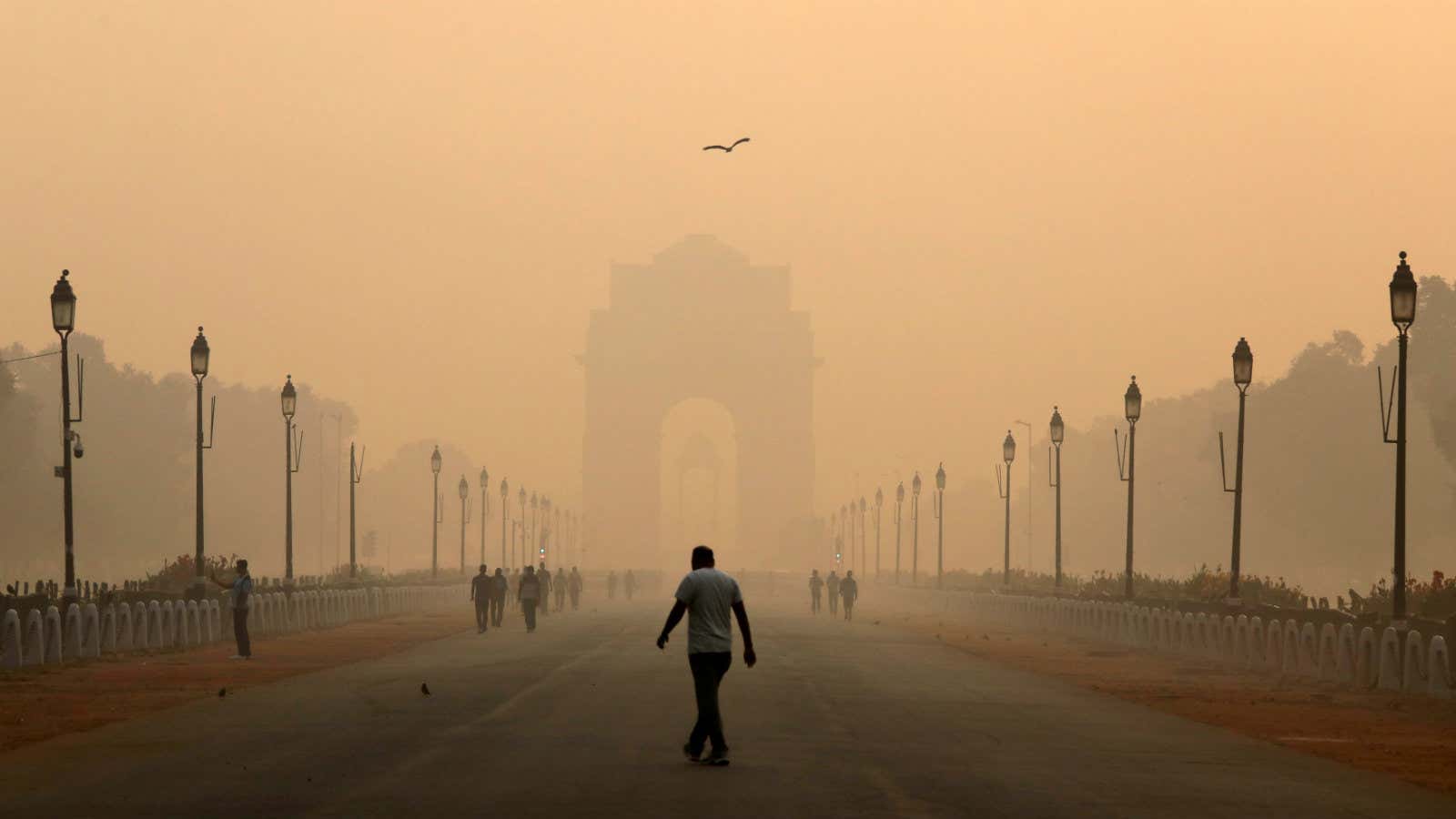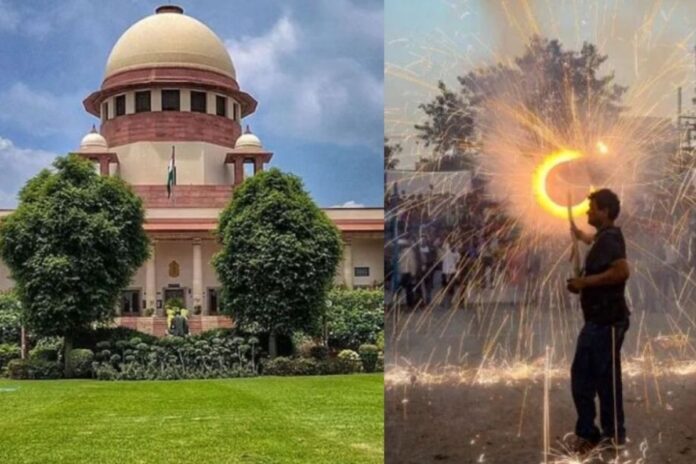The Supreme Court of India has reiterated that no religion encourages activities that contribute to pollution while asking the Delhi government to make a decision regarding extending the year-round ban on firecrackers in the national capital. The statement came from a bench comprising Justices Abhay S Oka and Augustine George Masih, which stressed that the right to live in a pollution-free environment is a fundamental right, safeguarded under Article 21 of the Indian Constitution.
“No religion encourages any activity that creates pollution,” the bench asserted, adding, “If firecrackers are burnt indiscriminately, it affects the fundamental right to health of citizens.” The court was hearing a set of petitions concerning Delhi’s worsening air pollution and urged the Delhi government to consider imposing a perpetual ban on firecrackers to address the pollution crisis.

During the hearing on Monday, the counsel representing the state government stated that a decision would be taken after consulting all stakeholders. In response, the bench directed the Delhi government to finalize its decision on the ban before November 25. The court also questioned the delay in issuing the notification about the firecracker ban, pointing out that it was announced only on October 14. By then, people who intended to use firecrackers would have already stocked them, undermining the effectiveness of the ban.
The Supreme Court expressed its dissatisfaction with the Delhi Police’s lack of seriousness in enforcing the ban and issued stern instructions to the Police Commissioner to ensure the proper implementation of the prohibition. The court directed the Police Commissioner to take immediate action to inform all concerned about the ongoing ban and ensure that no license holder manufactures, stores, or sells firecrackers within the jurisdiction of the National Capital Territory of Delhi.

The bench further directed the Delhi Police to notify all entities selling firecrackers online, including on marketing platforms, to cease the sale and delivery of firecrackers within Delhi’s limits. It instructed the Police Commissioner to establish a special cell for the enforcement of the ban and made Station House Officers (SHOs) of all local police stations accountable for enforcing the ban throughout the year. The court also demanded that the Police Commissioner file a personal affidavit detailing the steps taken to implement the firecracker ban by November 25.
In addition to addressing the issue within Delhi, the Supreme Court also sought responses from other states in the National Capital Region (NCR) on the matter of banning the manufacture, storage, sale, and use of firecrackers within their boundaries. The neighboring NCR states have been asked to submit their responses by November 25, 2024.

The court’s observations underscore the significance of ensuring a clean environment as part of the fundamental right to life and highlight the responsibility of both state authorities and citizens in tackling the pollution crisis. The bench made it clear that decisive actions and timely interventions are crucial to effectively curb pollution, especially in a region like Delhi, which battles severe air quality issues, particularly during the festive season.

